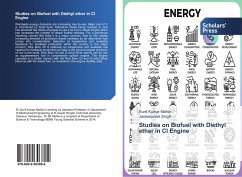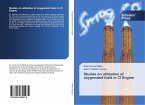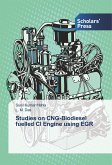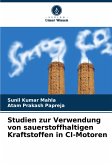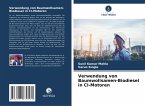Worldwide energy demands are increasing day-by-day. Major part of it is contributed by fossil fuels. Petroleum diesel being cheaper in cost has attracted the minds of people to use it as fuel in diesel engine which has increased the number of diesel fuelled vehicles. For a petroleum importing country like India it is a major concern. Due to this rapidly increasing demand of petroleum diesel biodiesel as an alternative fuel comes into consideration. Selection of inexpensive and available feedstock for biodiesel production within the country is the major concern. Rice Bran Oil is relatively an inexpensive and available raw material for biodiesel production as India is the second largest producer of rice in the world. Rice Bran Oil and Di ethyl Ether blends can be use as supplementary fuel in compression ignition engine. The engine operates in a similar manner with the Rice Bran Oil and Di ethyl Ether blend as with the diesel fuel, as reviewed in the engine stability data.
Bitte wählen Sie Ihr Anliegen aus.
Rechnungen
Retourenschein anfordern
Bestellstatus
Storno

